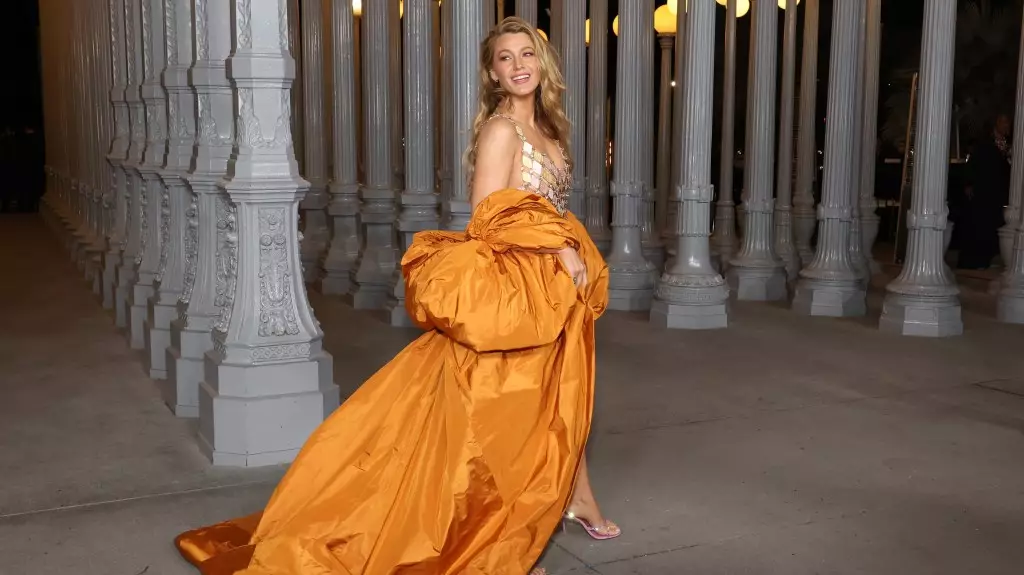The recent lawsuit filed by Blake Lively against her co-star and director, Justin Baldoni, has ignited significant discussions surrounding workplace culture in the entertainment industry. Lively alleges not only sexual harassment but also a coordinated smear campaign against her, claiming that Baldoni sought to undermine her professional reputation following her complaints of misconduct. As the story unfolds, it raises crucial questions about power dynamics, accountability, and the very fabric of professional relationships in Hollywood.
According to the lawsuit, Lively experienced immediate and substantial repercussions from the alleged harassment. Notably, her withdrawal from hosting the 50th season premiere of “Saturday Night Live” epitomizes the far-reaching consequences of workplace misconduct. Originally slated to host the iconic show, Lively felt compelled to step down due to external pressures fueled by negative perceptions generated after her complaints about Baldoni’s behavior on set. The situation was exacerbated when she was also forced to cancel a pivotal corporate event for her haircare line, illustrating how allegations of harassment can seep into various facets of a person’s professional life.
Additionally, the lawsuit details a collective meeting intended to address the resumption of filming for “It Ends With Us,” where Baldoni’s behavior reportedly became a topic of discussion. The document asserts that during this all-hands meeting, Lively and her husband, Ryan Reynolds, confronted Baldoni about what Lively described as inappropriate conduct. The dynamics of such a meeting underscore the stress and turmoil that can arise in collaborative environments when harassment is involved, revealing how individuals may feel cornered or obligated to suppress their concerns to maintain professional relationships.
Baldoni’s purported engagement in a “sophisticated press and digital plan” to retaliate against Lively raises alarming concerns about media manipulation and its impact on public perception. The lawsuit claims that Baldoni collaborated with crisis management professionals to discredit Lively, seeking to orchestrate a narrative that favored his position. This aspect of the case highlights how the intersection of celebrity culture and media can create a dangerous environment for individuals speaking up against misconduct.
In an age where social media amplifies issues of harassment, the role of public opinion becomes paramount. Lively’s allegations suggest that the very foundation of her professional identity was compromised due to orchestrated efforts to malign her reputation. This not only reflects a personal struggle for Lively but also serves as a broader commentary on how the entertainment industry handles allegations of misconduct.
In the wake of Lively’s lawsuit, Baldoni’s legal representation defended him vigorously, dismissing the accusations as categorically false. This reflects a trend in the industry where counterclaims often arise when allegations are made, creating a complex legal battle. As Baldoni’s agency, WME, severed ties with him following the lawsuit’s filing, it reveals the potential ramifications on a professional level that artists face when embroiled in controversy. In contrast, Lively has garnered support from notable figures, including the author Colleen Hoover, who publicly acknowledged Lively’s integrity and character.
As industry professionals rally behind or against those involved in such cases, the implications of these supporting or opposing stances could shape future interactions and public attitudes towards similar allegations. The support from peers can serve to validate a victim’s experiences, while public denial can exacerbate the stigma surrounding speaking out against harassment.
Blake Lively’s lawsuit not only encompasses her personal challenges but also underscores systemic issues that need addressing within Hollywood and beyond. It spotlights the importance of establishing safer work environments where individuals feel empowered to voice their concerns without fear of retribution. As the case unfolds, it could catalyze broader discussions around industry standards for addressing misconduct and the profound effects of harassment on personal and professional lives.
Ultimately, the outcome of this lawsuit may resonate far beyond Lively and Baldoni, serving as a landmark case in addressing how the industry hones relationships of power and vulnerability. It advocates not just for one individual’s standing but calls for a comprehensive reevaluation of workplace culture, conducting respectful dialogues around harassment, and against the backdrop of accountability within the entertainment realm.


Leave a Reply